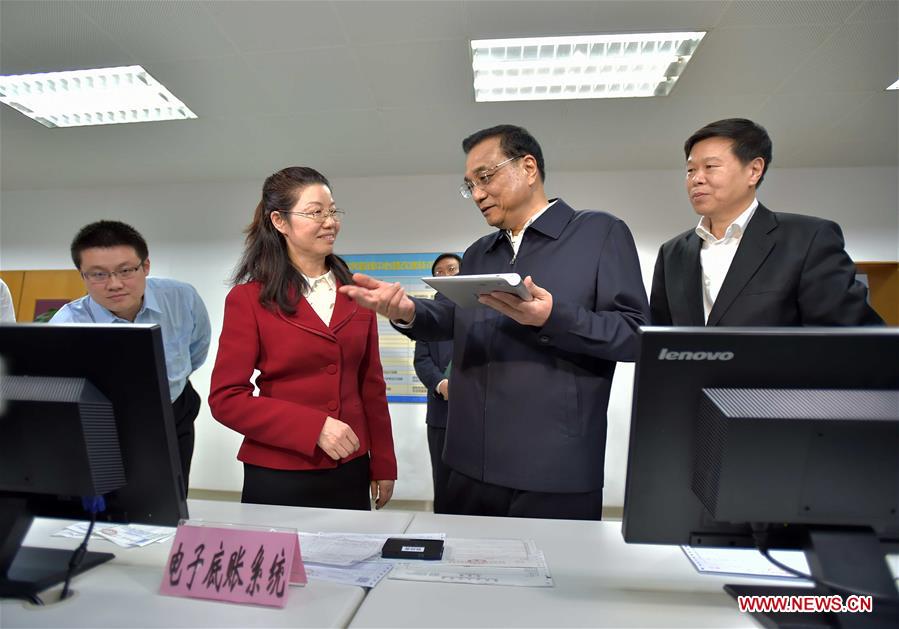BEIJING, April 4 (Xinhua) -- Chinese Premier Li Keqiang has urged solid efforts from the country's financial and taxation authorities to deliver the value-added tax (VAT) reform as part of efforts to invigorate the real economy.

Chinese Premier Li Keqiang (2nd R) visits the State Administration of Taxation in Beijing, capital of China, April 1, 2016. Li Keqiang inspected the State Administration of Taxation and the Ministry of Finance on April 1, urging solid efforts from the financial and taxation authorities to deliver the value-added tax (VAT) reform as part of efforts to invigorate the real economy. (Xinhua/Li Tao)
During a visit to the State Administration of Taxation and the Ministry of Finance on Friday, the premier hailed the expansion of the VAT scheme, which began in 2012 to replace business tax with VAT in certain industries, as a major step in China's structural reform.
Starting from May 1, the replacement will be extended to construction, real estate, finance and consumer services to avoid double taxation.
VAT refers to a tax levied on the difference between a commodity's price before taxes and its production cost. Business tax refers to a levy on a business's gross revenues.
To ensure that the tax burdens on all industries be reduced, Li called for the central and local authorities to coordinate planning despite possible challenges.
The expansion of the tax reform, which will ease taxes by more than 500 billion yuan (76.9 billion U.S. dollars) this year, will help counter downward pressures on growth, Li noted.
Meanwhile, easing burdens on the service industry will facilitate industrial restructuring, he said, adding a unified taxation system will help fostering a fairer environment for businesses.
The premier is also looking to the expanding reform to stimulate mass innovation and create an amicable climate for private enterprises, which played a central role in job creation.
In the face of continued economic headwinds, China has made supply-side reform an economic priority, and tax cuts to lower the cost of business is a major policy option.
To cover the tax reductions for enterprises, the government has decided to increase its deficit-to-GDP ratio to 3 percent this year from 2.3 percent last year.
The government deficit for 2016 is projected at 2.18 trillion yuan, an increase of 560 billion yuan over last year.







